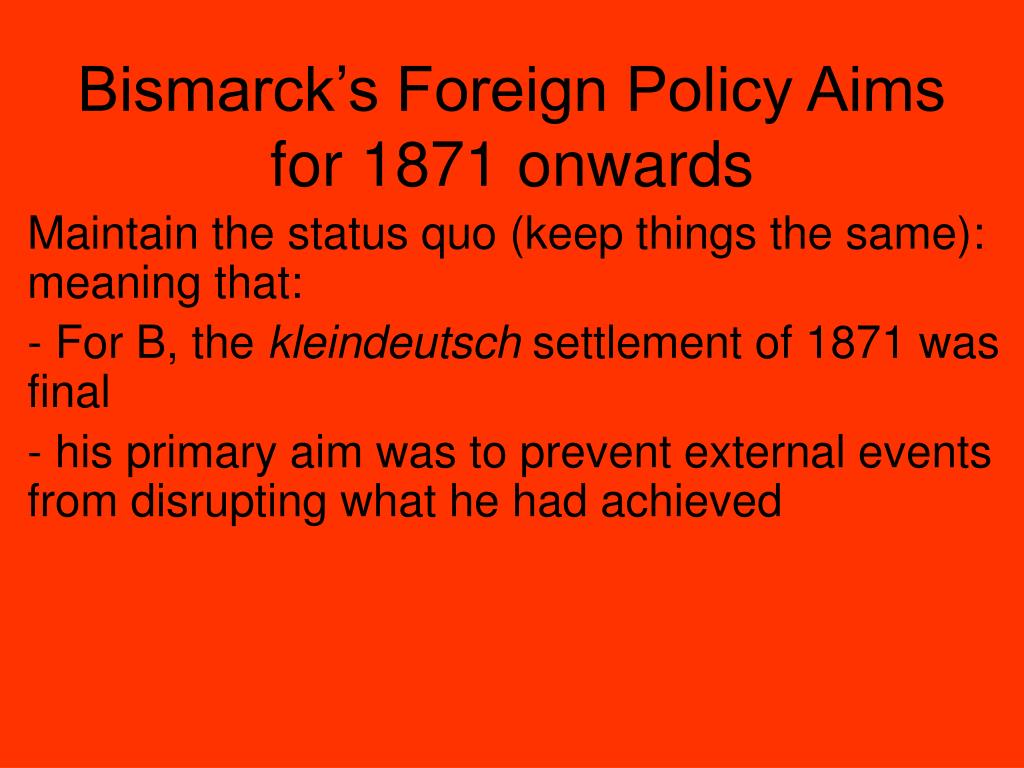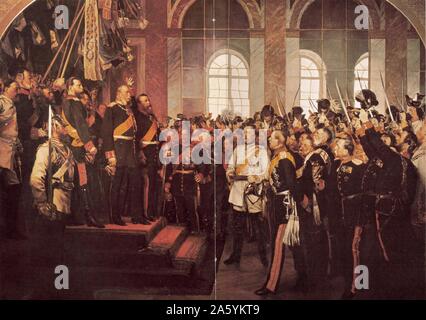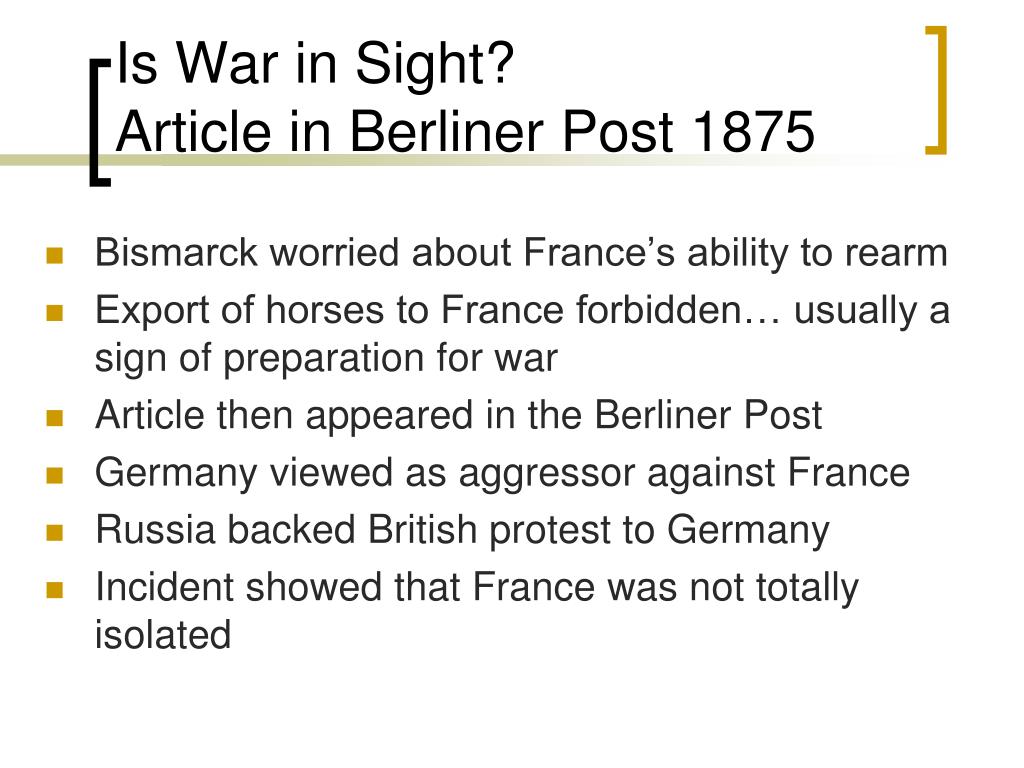
The existing social and political order was to be defended in order to prevent a Hobbesian chaos of all against all. He believed in a Christian state that received its sanction ultimately from the deity. If anything, his politics were more conservative. His politics during the 1840s did not diverge substantially from those of a typical country squire. In fact, Bismarck's last words before dying in 1898 expressed the wish that he would once again see Johanna, who had passed away some years earlier. There is no question that the marriage was a very happy one. A subsequent critic was to remark that Bismarck believed in a God who invariably agreed with him on all issues. While courting Johanna, Bismarck experienced a religious conversion that was to give him inner strength and security. During this period he met and married Johanna von Puttkamer, the daughter of a conservative aristocratic family famed for its devout pietism. This frequently expressed nostalgia may have been more guise than reality. Subsequently he romanticized these years on the land and wondered why he had abandoned an idyllic existence for the insecurities of a life in politics. From 1839 to 1847 Bismarck lived the ordinary life of a Prussian country squire. His mother's death in 1839 gave him the opportunity of resigning in order to come to the assistance of his father, who was experiencing financial difficulties in the management of his estate. After a brief stint at the university in Berlin, he entered the Prussian civil service, where he was plagued by boredom and an inability to adhere to the hierarchical principles of the bureaucracy. Evidently Bismarck was a mediocre student who spent much of his time drinking with his comrades in an aristocratic fraternity. With his mother's encouragement, he took up the study of law at the University of Göttingen in the kingdom of Hanover. He took his university entrance examination (Abitur) in 1832. He spent five years at the school and went on to the Frederick William gymnasium for three years. The young Bismarck resented exchanging an easy life in the country for a more circumscribed life in a large city, where in school he was pitted against the sons of Berlin's best-educated families. When her son Otto was seven, she enrolled him in the progressive Plamann Institute in Berlin and moved to the capital to be near him. She had been married to Ferdinand von Bismarck at age 16 and found provincial life confining. His mother, Wilhelmine Mencken, came from an educated bourgeois family that had produced a number of higher civil servants and academics. The family's economic circumstances were modest-Ferdinand's farming skills being perhaps less than average-and Bismarck was not to know real wealth until the rewards flowed in after the achievement of German unification.

Ferdinand was a typical member of the Prussian landowning elite. His father, Ferdinand von Bismarck-Schönhausen, was a Junker squire descended from a Swabian family that had ultimately settled as estate owners in Pomerania. Early years Bismarck was born at Schönhausen, in the Kingdom of Prussia. But in domestic policies his patrimony was less benign, for he failed to rise above the authoritarian proclivities of the landed squirearchy to which he was born. Once the empire was established, he actively and skillfully pursued pacific policies in foreign affairs, succeeding in preserving the peace in Europe for about two decades. Have such power over an old man.” Did that relationship change theīismarck was Prime minister of Prussia (1862-73, 1873-90) and founder and first chancellor (1871-90) of the German Empire.

“Bismarck is the king’s last mistress because only such a creature could Count Waldersee remarked cynically afterīismarck had been the king’s prime minister for more than 20 years, This lecture examines the strange relationship betweenīismarck and King William I.

Bismarck’s mother dominated his upbringingĪnd gave him a bourgeois education, complete with university and a lawĭegree, neither the sort of thing that proper Prussian chaps considered

Hypochondriac, a brilliant and well-read man, a convert to an extremeįorm of Protestant mysticism, and one of the few Prussians who never The real Bismarck had a different character, a Three wars and came to embody everything brutal and ruthless about Von Bismarck (1815–1898), the “Iron Chancellor,” unified Germany in


 0 kommentar(er)
0 kommentar(er)
